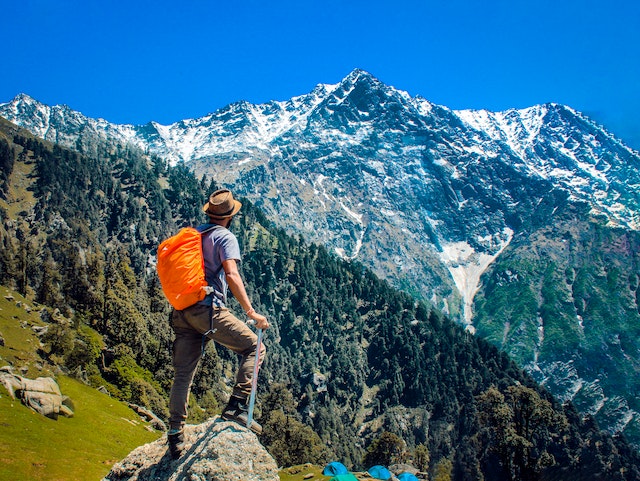What is adventure tourism?
- Adventure tourism is a type of tourism that involves activities that are challenging and often require physical hard work. It goes beyond traditional sightseeing or relaxation, focusing on providing thrilling and adventurous experiences to participants. It includes activities such as trekking, mountaineering, white water rafting, paragliding, scuba diving, and wildlife safaris. Adventure tourism offers a range of activities that push individuals out of their comfort zones and into the realm of excitement and exploration.
Benefits of Adventure Tourism for an Economy:
- Revenue generation: Adventure tourism is important for a country as it attracts both domestic and international tourists, contributing to the growth of the tourism industry and the economy.
- Sustainable development: It promotes sustainable development by encouraging the preservation of natural and cultural resources.
- Job creation: Adventure tourism also creates employment opportunities, especially in rural and remote areas, and promotes community engagement.
- Improvement of the country’s image: It enhances the country’s image as an adventurous and vibrant destination, attracting visitors from around the world and showcasing its unique natural beauty and cultural heritage.
- Promotion of local business: Adventure tourism provides an opportunity for local communities to showcase their culture, handicrafts, and local products. This promotes local entrepreneurship, encourages the growth of small-scale businesses, and creates a market for traditional arts and crafts.
India’s Adventure Tourism:
- Diverse Geographical Landscapes: India is blessed with diverse geographical landscapes, making it an ideal destination for adventure tourism. From the majestic Himalayas in the north to the serene backwaters of Kerala in the south, India offers a wide range of adventure activities such as trekking, mountaineering, river rafting, wildlife safaris, and more.
- Seasonal versatility: India is a year-round destination, with different activities to enjoy depending on the season.
- Cultural Richness and Heritage: India provides a captivating and immersive experience of rich culture and heritage, with its ancient traditions, magnificent architecture, and vibrant festivals. The unique blend of adventure and cultural immersion creates a truly enriching experience for tourists.
- Affordability: India is a relatively affordable destination, making it a great option for budget-minded adventurers.
Challenges for India’s Adventure Tourism:
- Lack of awareness: Many people in India are not aware of the opportunities for adventure tourism in the country. This is partly due to the lack of marketing and promotion in the industry. As a result, many potential tourists are not even aware that India is a good destination for adventure tourism.
- Skill Development: The adventure tourism industry requires skilled and trained professionals who can guide and assist tourists in various adventure activities, which is lacking in India.
- Access to Finance: Many adventure tourism operators, especially small-scale businesses, face challenges in accessing finance for infrastructure development, equipment purchase, and marketing activities.
Conclusion:
Adventure tourism is a growing industry that can have a positive impact on the economy and environment of India. It provides numerous benefits for the economy, however, there are certain challenges that need to be addressed, such as lack of awareness, skill development, and access to finance. By addressing these challenges and investing in marketing, training, and financial support, India can unlock the full potential of adventure tourism, attract more tourists, and further contribute to the growth of its tourism industry and economy.
Photo by DreamLens Production
Your Turn…
What’s your take on this topic? Express your point of view in the comment section below. And subscribe to our blog to read answers to the trending GD topics.
Copyright @ Group Discussion Ideas.

